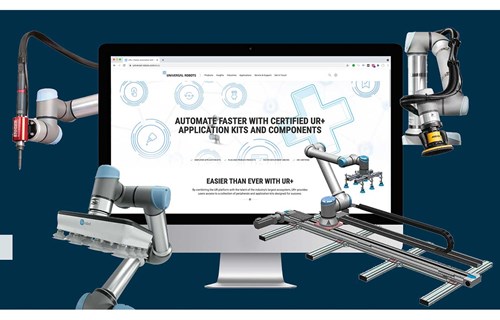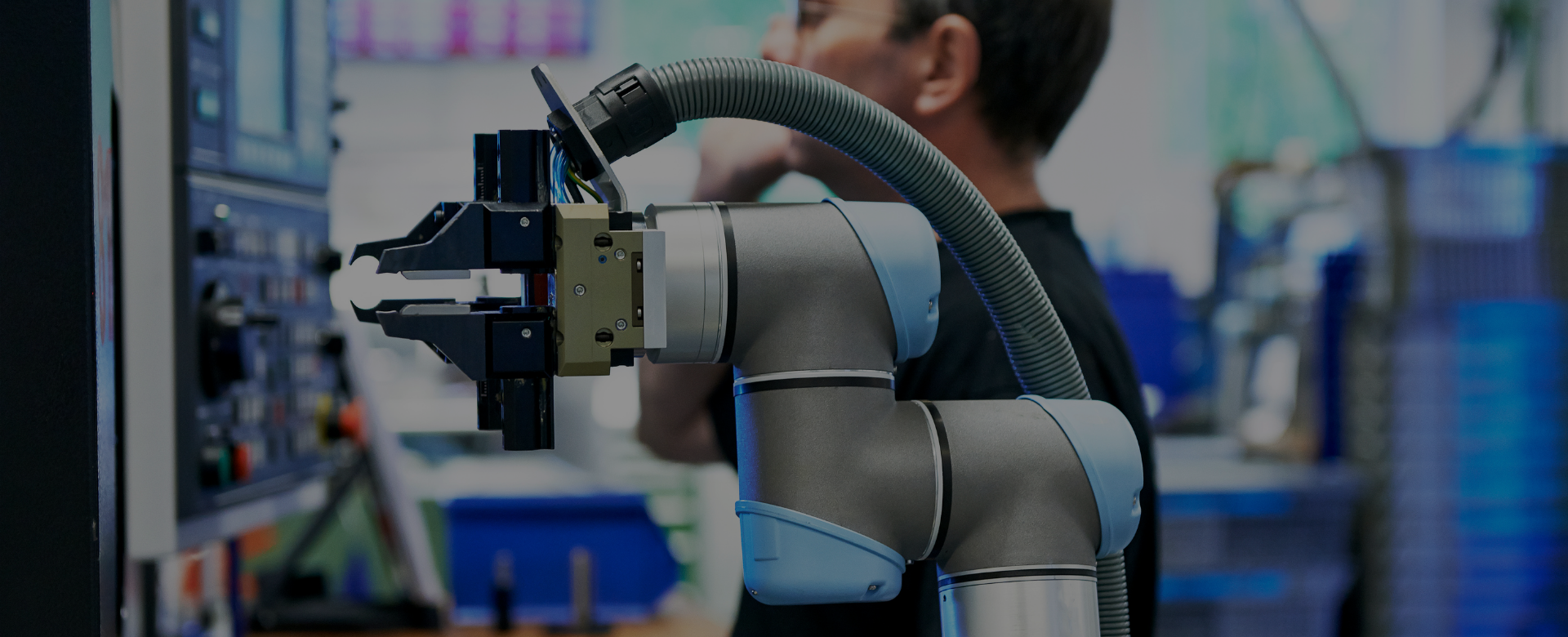1+1=3
As I alluded to in the beginning, no technology lives in a vacuum – and there is perhaps a no better example of this than Robotiq, a leading robotics tools provider that has found a thriving place in the Universal Robots ecosystem. While sitting in the audience at the fourth annual Robotiq User Conference (RUC), I had the chance to ponder how influential the bustling ecosystem surrounding e-Series has been on its success. Nowhere else in the world can you find hundreds of people gathering at an event hosted by a third-party developer of robot accessories. This level of interest stems not from the technology that Robotiq puts into its products, but instead, the buzz is around the application possibilities that those products unlock for Universal Robots. We saw new capabilities centered around applications like CNC tending, Sanding and Finishing, Quality Testing and Assembly – all designed to make these processes easier for the robot novice to tackle.
Users want solutions, not features
Pragmatic users only care about features so long as they help them accomplish their goal. When you listen to an end-user talk about their robot application, you hear about what job the robot is doing. You will often hear about the benefits that automation has brought – cost savings, ergonomic improvements for employees, quality increases. Carlos Han, staff manufacturing engineer at medical device manufacturer Smith & Nephew told the audience at the Robotiq User Conference “If you had a human being doing this [operation] 8 hours a day, you can see how repetitive that will be, and how ergonomically unfriendly it is. By having the robot, I can have our skilled operators and finishers do something value-adding, instead of just deburring the drills all day long.” The story you hear is about how the UR deployment has helped the people in his company – not about how the new catalog specs knocked his socks off.
Where will the e-Series be in another year? If the world continues to embrace the UR+ platform, and use its tools to hone in on solving the world’s manufacturing problems, the sky is the limit. Steve Jobs said it best to the Rolling Stone in 1994: “Technology is nothing. What's important is that you have a faith in people, that they're basically good and smart, and if you give them tools, they'll do wonderful things with them.” With these tools focused on the real work that people need to do, I think we can only imagine today the ‘wonderful things’ people will dream up to do with them.














